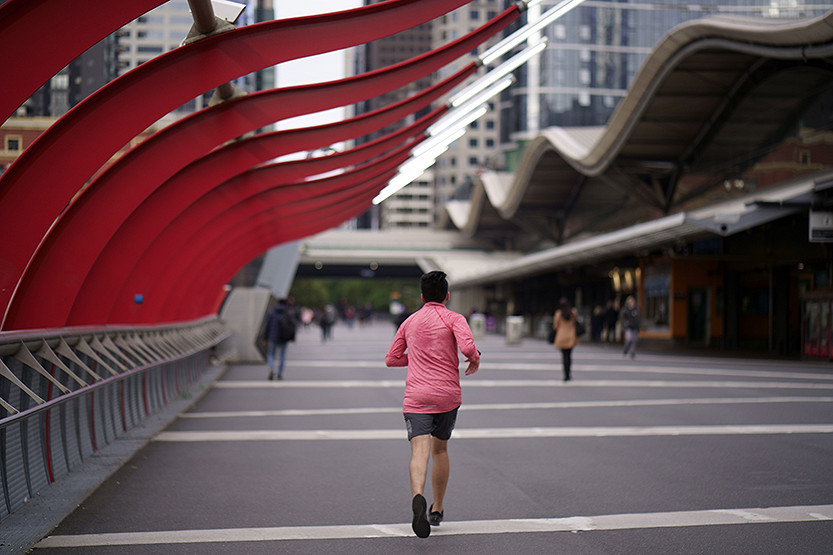Night-time’s fine, daytime’s not: Council calls on experts to bridge city’s economic gap
With the council’s “night-time economy” committee set to lapse, it has shifted focus to boosting day time trade.
The City of Melbourne is calling on business and industry experts to join a new committee focused on boosting the city’s 9am to 5pm economy, which continues to struggle in the post-COVID era.
As Melbourne’s night-time economy thrives, the council has created a “City Economy Advisory Committee” to advise on the challenges facing daytime trade and bridge the gap between the two.
The move to establish a new committee, the terms of reference for which were endorsed at a July 11 Future Melbourne Committee meeting, comes as research further revealed a gap between the two economies.
New inflation-adjusted data revealed that night-time spending was 12 per cent higher in April 2023 compared with April 2019.
Conversely, spending during business hours in April 2023 was 15 per cent below April 2019.
The research also showed that morning commuter activity (between 6am and 9am) at Flinders St was currently at around 60 per cent of the pre-COVID benchmark.
Lord Mayor Sally Capp said the council was determined to bring those figures closer together, and asked Melbourne’s business experts to come forward.
“We’re calling on Melburnians with expertise and experience across a range of business and industry sectors to put their hand up to join this new committee and help us shape the future of Melbourne’s daytime economy,” Cr Capp said.
We want to learn how we can bring more people into the city to boost daytime business for our traders.
The new committee, made up of six to 10 members plus two councillors, was set to include figures with a strong connection to industry bodies, small business, major employers and/or other stakeholder groups, and live, work or own a business operating in the City of Melbourne.
It would look to provide advice to the council on the current challenges relevant to the city’s economic recovery and suggest projects and initiatives that could positively improve it.
Despite the rising cost of mortgage repayments and rent across the nation, Melbourne’s visitor economy continues to return strong numbers.
However, the wide adoption of a hybrid working model since the pandemic, which sees employees work some days in the office and some at home, has impacted certain businesses throughout the city.
A report from management to the council spelled out the difficulties faced: “There is a strong symbiotic relationship between small businesses in ‘amenity’ sectors such as retail, hospitality, personal services (e.g., dry cleaning) and office-based sectors such as financial services, professional services, information technology/telecommunications and public administration,” it read.
“An active, ‘buzzy’ city is attractive to office workers, while office workers are also key customers for amenity businesses.”
The permanency of these shifts remained a key question as to the future of the city’s day-time economy, as spelled out in the report: “Are current patterns of work a temporary legacy of the pandemic or are they a ‘new normal’?” It asked.
The council’s City Activation portfolio chair Cr Roshena Campbell said a renewed focused was needed.
“Our night-time economy has recovered strongly with spending and visitation across key precincts exceeding pre-pandemic levels. The critical challenge for our city now is to ensure our daytime economy also recovers and grows strongly,” she said.
“Our new City Economy Advisory Committee will provide Council with the advice of industry and business to ensure our initiatives bring more people into the city.”
In late 2020 the council established a “Night-Time Economy Advisory Committee” as a COVID-19 measure to prop up an ailing arts, hospitality and live music sector.
The committee lapsed on June 30 as it had “largely served its purpose”, however was set to be replaced with periodic “deep dive” roundtable discussions rather than regular committee meetings.
These “topic-specific” half-day gathering would be held two to three times annually and focus specifically on, for example, live music, noise, or city safety.
“I’m proud of the role the committee has played in providing expertise and advice to boost the city’s economy after dark,” chair Penny Miles said.
“This new approach of in-depth roundtables will ensure the industry can work through some of our biggest challenges and opportunities to continue to build on the spectacular night-time momentum.” •

City of Melbourne unveils next urban forest plan for the CBD








 Download the Latest Edition
Download the Latest Edition